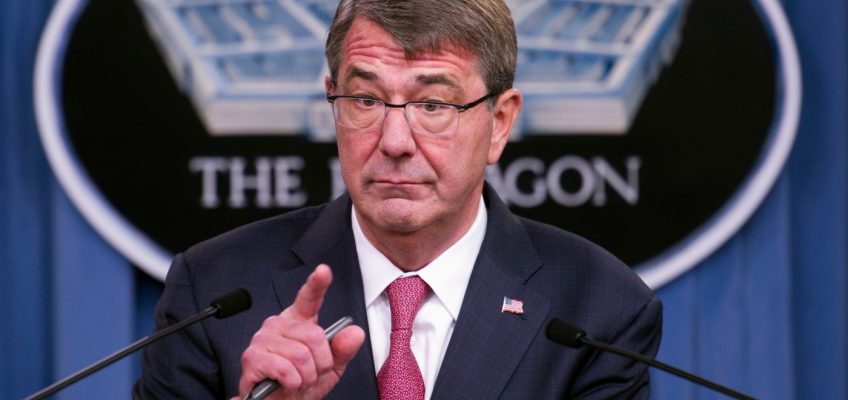As federal authorities under the direction of President Donald Trump prepare an enforcement operation targeted at Somali immigrants in Minnesota, local leaders and members of the Somali community Tuesday pushed back against what they see as an effort to sow “division and chaos.”
Last month the Trump administration suspended Temporary Protected Status for Somali immigrants in Minnesota — of which there are estimated to be around 400. Now immigration enforcement actions are expected in the Twin Cities for those with deportation orders.
Kassim Busuri, a former appointee to the St. Paul City Council who was born in Somalia, described the planned enforcement action as a political stunt, as only a few hundred of the 80,000 or so Somalis in Minnesota have TPS.
“We know Donald Trump is just playing with emotions. The numbers he’s thinking about, about illegal immigration and criminals — ask the police department. Most will say Somalis are model citizens and role models,” said Busuri, who is a volunteer executive director at the Minnesota Dawah Institute, a Muslim community organization.
‘Division and chaos’
“We should write letters to President Trump telling him why we are not garbage,” said Kassim Busuri to students after prayer in the mosque at the Da’wah Institute on Fairview Ave. in St. Paul on Tuesday, Dec. 2, 2025. (John Autey / Pioneer Press)
Around 73% of Somali immigrants are naturalized U.S. citizens, per the U.S. Census Bureau. Jaylani Hussein with the Council on American-Islamic Relations in Minnesota told the Associated Press that 95% of Somalis in the state were U.S. citizens.
At a Tuesday cabinet meeting, Trump called Somali immigrants “garbage,” saying they “contribute nothing,” and that he didn’t want them in the U.S.
“Their country is no good for a reason,” said Trump, who has blamed Somali immigrants and Gov. Tim Walz for fraud in Minnesota.
The planned sweeps and Trump’s suspension of TPS come after an unconfirmed report that fraud funds in Minnesota may have ended up funding a terrorist group in Somalia. U.S. Treasury Secretary Scott Bessent on Monday said the matter is now under investigation by his department.
“Everything is being put into the media to make us look bad,” Busuri said. “He’s pitting the community against each other. Trump is trying to start a ruckus in Minnesota, and cause division and chaos, as usual.”
Former Acting U.S. Attorney Joe Thompson has said fraud in recent years could top $1 billion. Nearly 80 individuals have been charged in the Feeding Our Future case involving as much as $250 million in federal pandemic relief money administered by the state Department of Education. Meanwhile, the U.S. Attorney’s office in Minnesota also is prosecuting fraud cases in autism and housing stabilization service programs funded by Medicare and administered by the Minnesota Department of Human Services.
Local response
On Tuesday, state and local leaders, including Walz, St. Paul Mayor Melvin Carter, and Minneapolis Mayor Jacob Frey pushed back against what they have called the demonization of Somalis by Trump.
Minneapolis Mayor Jacob Frey speaks during a news conference addressing the media following reports that the Trump administration will be targeting Somali immigrants in the Twin Cities, at City Hall in Minneapolis, Tuesday, Dec. 2, 2025. (Leila Navidi/Star Tribune via AP)
“Targeting Somali people means that due process will be violated. Mistakes will be made. And let’s be clear, it means that American citizens will be detained for no other reason than the fact that they look like they are Somali,” Frey said. “For decades, the Somali community has added greatly to our city. The economic fabric, their hard work, their leadership. It has made Minneapolis a better place.”
The Council of American Islamic Relations has described the Trump administration’s recent targeting of Somalis as “political scapegoating.”
Amina Deble, came to the U.S. 25 years ago and, like many Minnesota-based members of Somalia’s diaspora, became a citizen a few years later. Deble owns Oasis Mediterranean restaurant in the West Bank/Cedar-Riverside neighborhood and raised six kids to adulthood in Minnesota.
“I just want to say thank you to the governor and the mayor, Jacob Frey, all the leaders who are standing up for the rights of Somalis,” she said. “If there’s fraud in this community, there’s specific people who did that, and for those specific people, we’re more than happy for them to face the law, just like other Americans.”
Deble noted that, like her, many Somali immigrants in Minnesota are naturalized U.S. citizens and have little to worry about.
“I don’t think they will have fear,” she said. “Those who aren’t, I think they’ll go through the law. The governor has already spoken about this, the mayor, others.”
ICE raids
The upcoming Twin Cities immigration sweep follows higher-profile immigration raids this year in the Twin Cities, which drew protests and resulted in clashes between demonstrators and police. Two November raids in St. Paul resulted in law enforcement using chemical spray and rubber bullets.
St. Paul has a separation ordinance barring the city from working with federal immigration enforcement, though last week, the St. Paul Police Department responded to a protest during an immigration raid on the city’s East Side.
Carter said his office was working with city police to work on “facilitating peaceful protests” in the future.
“The last thing that we need is federal agents coming to town attempting to turn us against each other … to turn us against ourselves,” the mayor said at a news conference Tuesday with Frey. “The last thing we need is federal agents coming in town to create chaos and challenge for us.”
Carter urged anyone with concerns in St. Paul to reach out to immigrant and refugee services, a list of which the City Attorney’s Office compiles on the city’s website.
Ramsey County sheriff: ‘We don’t do immigration enforcement’
Ramsey County Sheriff Bob Fletcher said his agency hasn’t been involved with any recent immigration raids or protests, but that his office is in the process of reviewing recent events to develop a policy on how deputies should approach potential future incidents.
Fletcher said his agency patrols six cities that contract with the county, and that Immigration and Customs Enforcement could eventually show up in one of them — like Arden Hills, Little Canada or Vadnais Heights.
“We don’t do immigration enforcement,” Fletcher said. “We have very little — really — very little contact with ICE, but we want to be prepared for when an incident does occur.”
Asked about the Trump administration’s plans for targeted enforcement action against Somalis, Fletcher said he believed only a “very small number” would be affected.
“To my knowledge, there are very few Somalis who aren’t citizens,” he said. “I’m guessing ICE is also targeting other communities.”
Somalis in Minnesota
The first Somali refugees started to arrive in Minnesota after the collapse of the regime of President Siad Barre in 1991 and an ensuing civil war that forced close to a million Somalis to leave the country. Many still live in refugee camps in Kenya.
Minnesota became a popular destination for Somali refugees for several reasons, including quality of education, safety and affordability compared to other regions of the U.S., according to Jane Graupman, executive director of the International Institute of Minnesota.
Once a few families were in the state, more were attracted to the area. Many Somalis had first moved to the U.S. and later relocated to Minnesota. Church communities were particularly welcoming to Somali immigrants and played a significant role in helping them resettle.
“I think they felt supported by this community,” said Graupman, who has worked for the International Institute for 36 years. “They definitely found Minnesota to be a place where they thought that there was a future for their families and their community.”
Lutheran Social Services of Minnesota, Catholic Charities, the Minnesota Council of Churches, were among the faith-based groups that helped. The International Institute also played a role.
Treasury Department investigating claims MN fraud funded terrorists
Attorney Chris Madel seeks Republican nomination in MN governor race
How will Kaohly Her’s legislative career shape her leadership of St. Paul?
How fraud swamped Minnesota’s social services system on Tim Walz’s watch
A look at St. Paul’s legal tangles with the Trump administration
Today, there are around 80,000 Somalis living in Minnesota, more than in any other state. The vast majority live in the Twin Cities, and most are citizens.
“Across sectors, they’re very integrated into our community,” said Graupman, noting large Somali participation in the health care workforce among other fields. “To have a president say Somalis are contributing nothing to our country — it couldn’t be further from the truth.”




